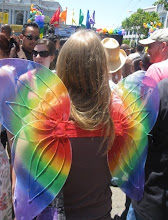Tuesday, April 6, 2010
The Olympics as a Political Space
Once again, the Olympic Committee is under the world’s magnifier. This is not a recent problem faced by the committee, however. We do not have to look too far back to notice the reoccurring pattern of political strife. In fact, in the history of the Olympic games, the world has witnessed many controversies. The 1972 Summer games in Munich, Germany, functioned as a stage for the political opposition between Palestine and Israel proper when members of the Israel Olympic team were murdered. More recent is the example of the tent city that went up in Vancouver to host- or more accurately to hide the city's homeless population. We look to the future now, where criticism surrounding the upcoming 2014 winter Olympics in Sochi, Russia has already surfaced.
The latest buzz surrounding the 2014 Olympics focuses on the Russian venue which hosted the 1864 defeat of the Circassian people, who were brutally attacked and murdered by the Russian Tsarist military (Zhemukhov, 2009). Many Carcassians feel the defeat should be labelled as an act of genocide, for up to 97% of the groups population was believed to be systematically murdered (Zhemukhov, 2009). The focal point of the criticism is centered around one of the main venues of the Sochi 2014 winter games is said to be one of the historical battlefields where many Circassians were collected and deported to the Ottoman Empire. Even if one does not know much about the political history surrounding the Circassians, it would seem highly insensitive to host an international event at the same site where an act of genocide has occurred in the past. When confronted, the Sochi organizing committee released a statement where they said it was not their place to comment on the political or historical events of the 2014 venue (Reuters, March 2010). I realize the committee members may not have been directly involved in the genocide, but they are indirectly influencing the present situation by refusing to comment on the issue. Personally, as public figures in the global lens, I believe it is as much their responsibility to comment on the issue as it was Canada's responsibility to comment on our own nation's problems at the 2010 Winter Olympics.
Although I do not condone violence and I certainly do not condone mass murders for the purpose of catching the attention of the world, I do agree that the Olympic games are a brilliant resource to get the message out. The issue of human trafficking, for example was introduced to millions of people across Canada and worldwide when studies appeared indicating a correlation between large sporting events and commercial sex. Despite the lack of belief, the message was put into the public sphere. Similarly, activists fighting to receive adequate housing for the homeless may not have been guaranteed a shelter but the issue was brought to the surface. What I am trying to argue here is the existence of both a manifest and latent function the Olympic games; they entertain millions, bring in a large revenue and showcase some of the world's finest athletes, but it also serves as the world's largest stage. It is quite remarkable to think of the potential political power a space is capable of creating.
References
Zhemukhov, Sufian. (September 2009).The Circassian Dimension of the 2014 Sochi Olympics.
Retrieved from http://www.circassianworld.com/new/general/1382-circassian-dimension-2014sochi-szhemukh.html
Ferris- Rotman, Amie (2010, March 21). Russian Olympics Clouded by 19th Century Deaths. Reuters. Retrieved from http://uk.reuters.com/article/idUKTRE62K0J220100321
Subscribe to:
Post Comments (Atom)



No comments:
Post a Comment